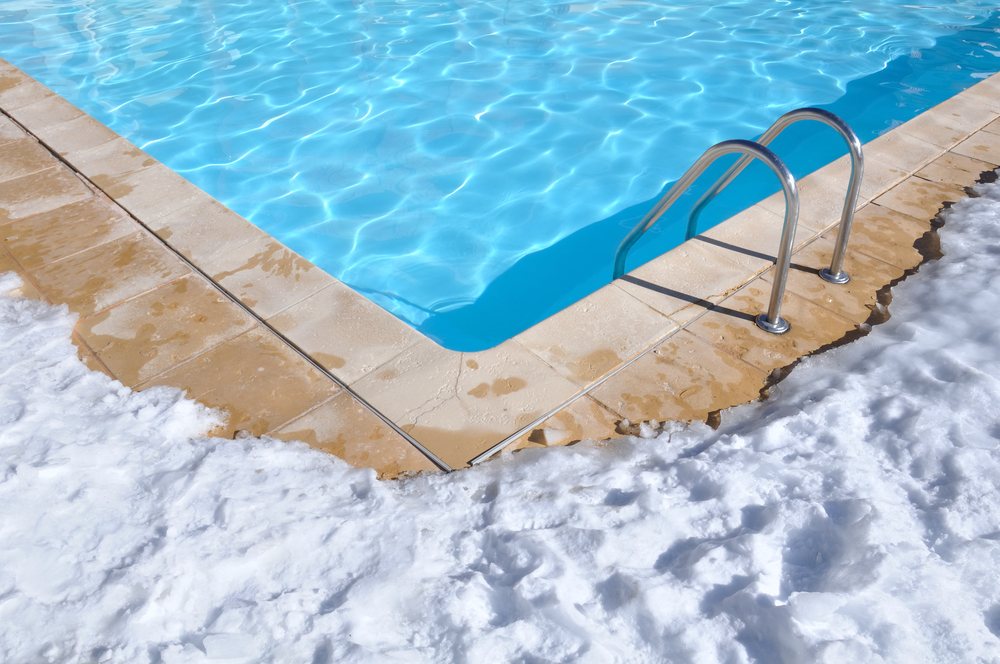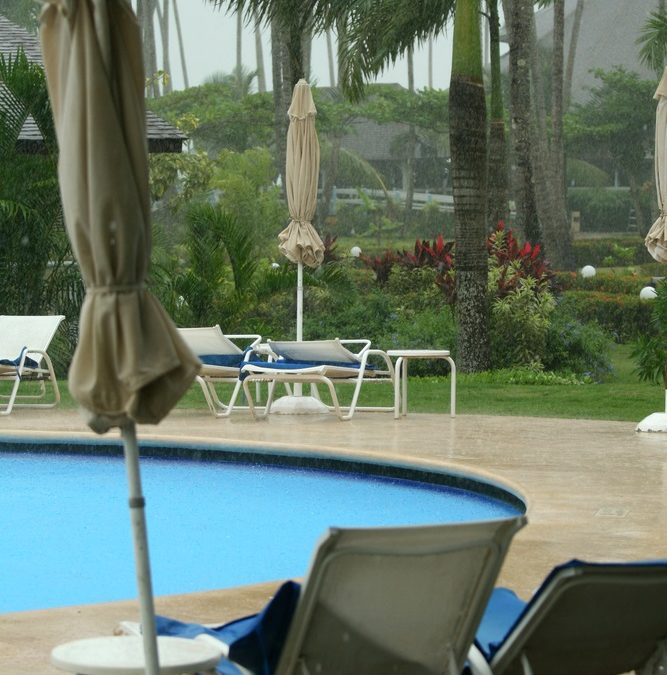We know. We know. Closing the pool for the season certainly doesn’t feel like a “fun in the pool” post, right?! We get it! BUT you need to know how to properly close your pool for the season so it is available for you to use next year when summer rolls around.
This article will also help you understand what your swimming pool contractor will do for you if he is the one who closes your pool. If you’re like most pool owners, you look at Labor Day as the unofficial end of summer and that is the time when pool owners close their pool for the season.
 Even if you close your pool, that doesn’t mean you need to move all of your outdoor living indoors. You can spend time in your outdoor living space as long as you have prepared for the cooler weather by adding fire pits, heaters and other comfort items to snuggle up in.
Even if you close your pool, that doesn’t mean you need to move all of your outdoor living indoors. You can spend time in your outdoor living space as long as you have prepared for the cooler weather by adding fire pits, heaters and other comfort items to snuggle up in.
Will you close your pool yourself or will you hire a pool contractor to do it for you? You will want to contact a pool service pro sooner rather than later if you want to get on a schedule to get your pool closed when you have a date in mind for that to occur.
How To Close Your Pool For The Season
When your pool is properly closed, it will survive the winter — the snow, ice and freezing temperatures. It will come through winter without damage and will be easier to open the following summer season. A swimming pool contractor understands the gravity and the necessity of a proper swimming pool closing. That includes: balancing the pool chemicals, adjusting water levels, draining the plumbing, covering the pool properly and more.
Here are the pool closing steps & reasons to protect your pool this winter season
- Prevent damage. The biggest risk to a swimming pool in the winter is from frozen water. If the water
 freezes it can crack and damage pool equipment including the filters, pumps and skimmer baskets. Frozen equipment may lead to your needing to have it repaired or replaced and this could be costly. A proper pool closing will assure water is drained from all equipment.
freezes it can crack and damage pool equipment including the filters, pumps and skimmer baskets. Frozen equipment may lead to your needing to have it repaired or replaced and this could be costly. A proper pool closing will assure water is drained from all equipment. - Cleaning. The pool will be thoroughly cleaned prior to a closing. Walls and floor brushed down, vacuum — the whole deal.
- Chemistry. To prevent any discoloration of the structure, corrosion of the equipment or scale or calcium build up, water chemistry will be addressed. Winterization chemicals will also be added to the water once the pool water level is dropped a few inches.
- Equipment. The pool filter will be removed, cleaned and stored for the season.
- Covered. The cover will be put in place once the pool is cleaned and floats are added to assure the water won’t freeze and damage the structure. Floats keep the cover from falling into the pool if there is a lot of rainwater or any ice build up. NOTE: You will want to remove standing water from the pool cover when there is a break in the weather so the water doesn’t damage the cover.
After you’ve made it through the winter ahead, your pool opening for the next season will be easier and quicker if you’ve taken the time to put in a days’ work on a proper and thorough pool closing.

